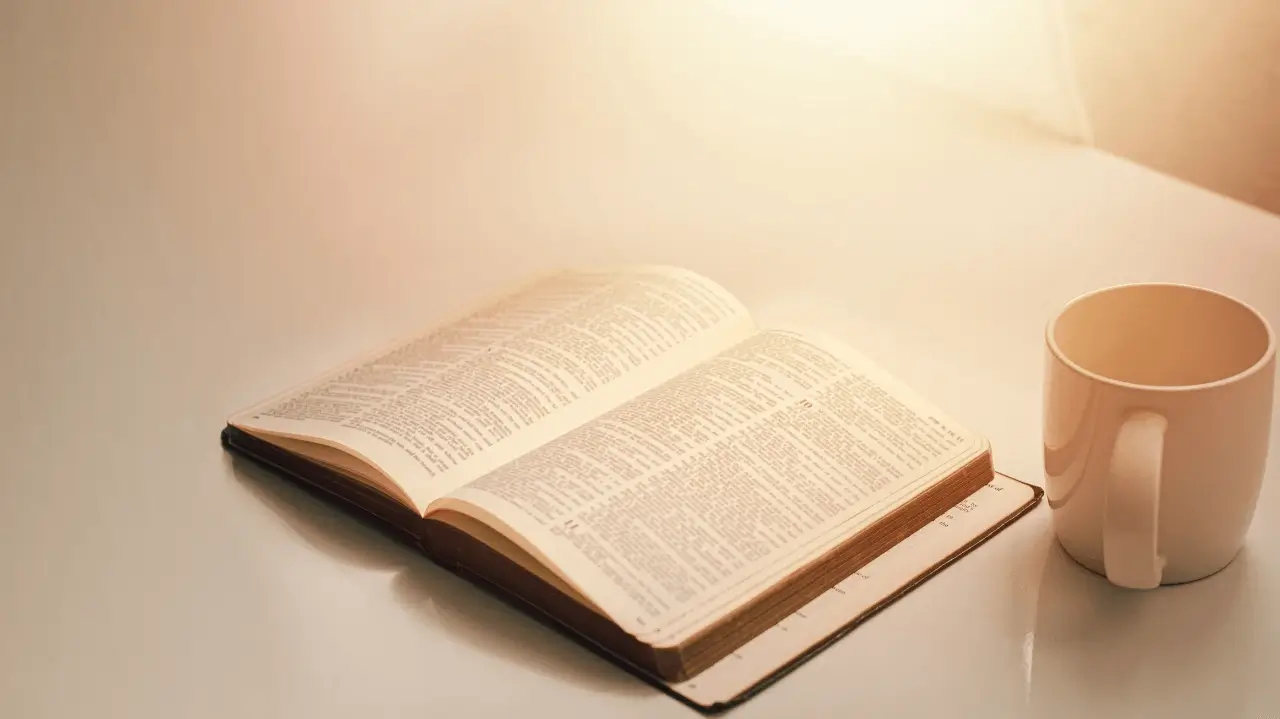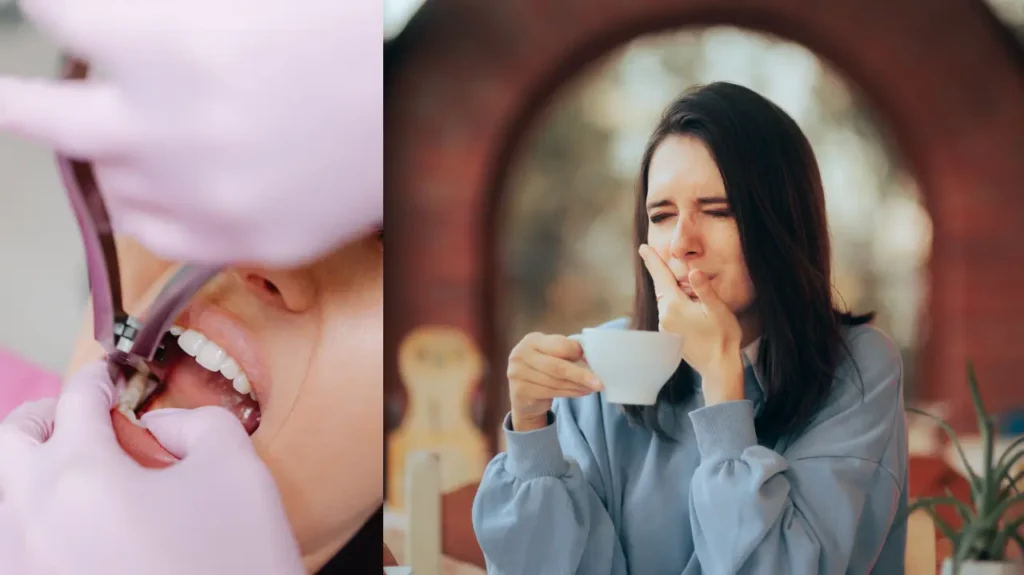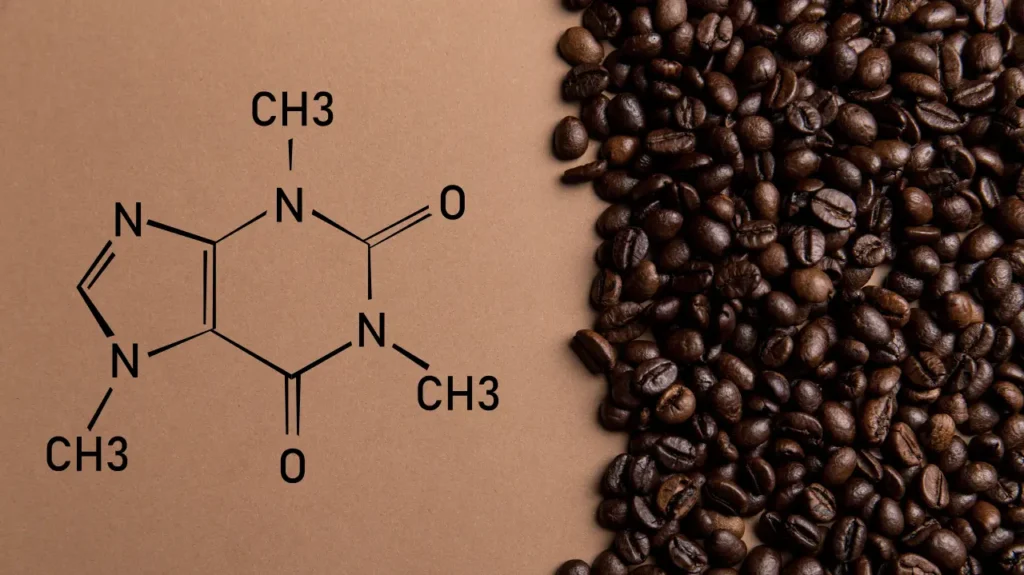Can Christians drink Coffee? This question brews more than just a morning pick-me-up; it stirs debates in churches, kitchens, and quiet prayer times.
As a coffee expert and believer, I’ve explored this topic through history, scripture, science, and ethics. No stuffy sermons here! We’ll like your favorite mug and keep it simple, practical, and warm.
Whether you’re a latte lover or a cautious caffeine consumer, let’s pour clarity into your cup.
By the end, you’ll savor your next sip with confidence, even a little holy boldness.
Historical Roots of Coffee in Christianity
Ethiopian monks in the 9th century chewed coffee berries to stay awake during nighttime prayers. That’s where Coffee’s journey with faith began, long before espresso machines or pumpkin spice lattes.
By the 1500s, Coffee reached Europe, but many Christians called it “Satan’s drink.” Why? Its energizing effects seemed suspiciously magical.
Then came the plot twist. Legend says Pope Clement VIII sipped Coffee and declared, “Let’s baptize this drink!” Whether true or just a good story, his approval made Coffee a Christian beverage overnight.
By the 1600s, reformers like Martin Luther’s followers swapped beer for Coffee, praising it for keeping minds clear, not clouded. Imagine Puritan prayer meetings fueled by Coffee instead of ale!
Churches caught on fast. In 17th-century England, Quakers ran coffeehouses as alcohol-free zones for honest business deals.
By the 1800s, Methodist preachers served Coffee at revivals to keep crowds alert. Today, walk into Red Rock Coffee in California, and you’ll see Bibles beside cappuccinos.
Their motto? “Caffeine, Culture, and Community.”
Even social media gets it. A viral post jokes, “My church has three sacraments: baptism, communion, and the coffee hour.”
From Ethiopian monasteries to your local megachurch’s latte cart, Coffee didn’t just join Christianity; it became part of its heartbeat.
Biblical Principles and Christian Views
Let’s be honest: the Bible never mentions Coffee. But its pages overflow with wisdom for modern dilemmas. Take self-control (Galatians 5:23).
If your day crumbles without three lattes, that’s a red flag. Or consider stewardship: “Your body is God’s temple” (1 Corinthians 6:19). Would you pour sludge into a sacred space? Quality beans matter, but so does balance.
Some groups, like Mormons, skip Coffee for faith-based health codes. Others, like Seventh-day Adventists, avoid caffeine entirely.
Yet most Christians sip freely, guided by Paul’s words: “Everything’s permissible, but not everything helps” (1 Corinthians 10:23).
Ever snapped at your kids before your morning brew? That’s when “permissible” becomes “problematic.”
Here’s the twist: Scripture celebrates God’s gifts. “Everything God created is good,” says 1 Timothy 4:4, “if received with thanksgiving.”
Coffee’s bold flavors and warmth can spark gratitude if we let them. Ethiopian Christians, for example, honor Coffee in ceremonial bunny rituals, thanking God for community and creation.
But what about fasting? Early Christians fasted to deepen prayer, abstaining from rich foods, including Coffee.
Modern believers might skip caffeine during Lent, not because it’s evil, but to reset their dependence.
Scientific Insights
Let’s geek out on coffee science, no lab coat required! Recent studies reveal Coffee’s double-edged sword: packed with perks but needing wisdom. Here’s your cheat sheet:
| Aspect | Details |
| Health Benefits | Lowers type 2 diabetes risk by 30% (Johns Hopkins). Fights Parkinson’s, liver cancer. Sharpens focus better than energy drinks (Rush University). Athletes gain endurance boosts (Healthline). Heart-friendly in moderation (Endocrine Society, 2024). |
| Potential Risks | Messes with sleep if drank after 2 PM (Mayo Clinic). Triggers anxiety in stress-prone folks. Acid reflux warning for sensitive stomachs (Johns Hopkins). Does coffee harm your teeth? Learn more about how coffee affects dental health. |
| Moderation | 3-4 cups daily (400 mg max) hits the sweet spot (PubMed). Pregnant? Cap at 200 mg think one strong latte (Healthline). |
But wait, there’s more! Coffee’s antioxidants (like chlorogenic acid) battle inflammation, a hidden cause of chronic diseases. Yet, your genes matter.
Slow caffeine metabolizers? That 4th cup could spike blood pressure.
Ever tried cold brew? It’s 67% less acidic and gentler on tummies. And decaf isn’t “cheating.” Swiss Water Process decaf keeps antioxidants without the buzz.
From a faith angle, science supports biblical balance. “Your body is a temple” means honoring how Coffee affects you.
Maybe your friend thrives on six shots, but you’re wired after one. That’s okay! As one Christian nutritionist told me, “Don’t idolize Coffee, or outlaw it. Let it fuel service, not self-indulgence.”
Coffee Ethics
Let’s talk hard truths. That $5 latte? The farmer who grew your beans might earn less than $0.50 a day. This isn’t just economics; it’s a justice issue for Christians.
The Bible shouts, “Do not exploit the poor” (Proverbs 22:22), yet 85% of coffee farmers live below the poverty line.
Fairtrade fixes this. Certified brands pay farmers 30-50% more, funding schools and clinics. But “fair trade” isn’t enough.
Look for “direct trade” roasters like Thrive Farmers Coffee, where farmers earn up to 10x more by cutting out middlemen.
Ten Boom Coffee tests beans for mold (common in cheap Coffee) to protect your health and the grower’s dignity. Curious about low-acid alternatives? Explore mushroom coffee’s unique profile.
Environmental care matters, too. Shade-grown Coffee preserves bird habitats, while organic farming stops chemical runoff from poisoning rivers, a modern-day “tilling and keeping” of Eden (Genesis 2:15).
Lutheran World Relief even trains farmers in climate-smart practices, fighting deforestation one bean at a time.
Here’s where it gets personal. In Ethiopia, a church-backed co-op built a water well-using coffee profits. Kids once hauling dirty water now sit in classrooms. Your morning brew can save lives.
Yet “ethical” isn’t perfection. Even top brands face challenges. Start small: switch one bag to a faith-based roaster.
As author Jen Hatmaker writes, “Do justice where you are.” For coffee lovers, that means choosing beans that honor God’s people and planet.
Coffee & Community
Ever walked into a church and smelled freshly ground beans before hearing the sermon? You’re not alone.
After World War II, American churches added “coffee hours” to keep veterans lingering for donuts and connection.
Today, 78% of U.S. churches serve Coffee weekly, turning sanctuaries into living rooms. Take Saddleback Church’s café: their espresso funds mission trips, blending lattes with legacy.
But this isn’t new. In 1650s England, Quakers ran coffeehouses to discuss faith and abolition over mugs, no alcohol allowed.
Fast-forward to Seoul: megachurches like Yoido Full Gospel have in-house baristas, where members pray over macchiatos.
Even the Ethiopian Orthodox Church holds sacred bunna ceremonies, roasting beans while chanting psalms.
Why does Coffee work? It’s a great equalizer. A CEO and a teen mom can share a caramel swirl without hierarchy, mirroring Galatians 3:28: “No Jew or Greek, slave or free.”
In Chicago, a pastor told me, “Our coffee cart isn’t about caffeine. It’s the first step to saying, ‘You belong here.'”
Social media amplifies this. #ChurchCoffee trends show millennials posting pour-overs beside open Bibles. Cafés like The Well in Texas host “Coffee & Prayer” nights, drawing skeptics who’d never enter a sanctuary.
Yet it’s not all cozy. Some argue church coffee fosters cliques, the “regulars” hogging the creamer. Others see waste: disposable cups vs. stewardship.
But when done right, Coffee becomes communion. As one grandma in Nashville said, “I met my best friend at the percolator. We’ve prayed through 20 years of potlucks, and pancreatic cancer.”
Coffee Controversies
Not every Christian agrees on Coffee, and that’s okay. Let’s navigate these choppy brew waters with grace.
Addiction Alert: Ever seen a churchgoer panic when the coffeemaker breaks? Some pastors warn that relying on caffeine for joy or energy contradicts Philippians 4:13 (“I can do all things through Christ”).
In South Korea, the SaRang Church banned Coffee during fasting months to reset congregants’ dependence. “If coffee controls you, it’s an idol,” argues Pastor Tim Keller in a 2022 sermon.
Mormons & the Mug: For Latter-day Saints, skipping Coffee isn’t about health fads; it’s obedience to God’s 1833 “Word of Wisdom.”
This revelation to Joseph Smith forbids “hot drinks,” interpreted as Coffee and tea. But there’s nuance: some LDS members drink iced Coffee (still debated), while others avoid chocolate-covered coffee beans.
Their commitment? As strong as espresso, 95% of active Mormons abstain.
Spiritual Jitters: Contemplative Christians like the Quakers historically avoid stimulants to hear God’s “still, small voice” (1 Kings 19:12).
Modern mystics like author Sarah Bessey quit caffeine, finding prayer “deeper without the buzz.” Even Pope Francis urges moderation while sipping mate tea: “Don’t let earthly comforts drown the Spirit.”
The Grace Gap: Critics call these stances legalistic. Yet defenders stress freedom in boundaries. As ethicist Dr. Christine Sine notes, “For some, coffee fasts heal; for others, shared cups build bridges.”
The real issue?
Judging another’s cup. Romans 14:3-4 nails it: “Don’t treat coffee drinkers with contempt… Each answers to God.”
Whether you’re a triple-shot believer or a herbal tea saint, remember: Coffee divides only when we let it. As C.S. Lewis wrote, “Unity in Christ isn’t uniformity in mugs.”
Balancing Faith and Health
Coffee isn’t just a drink; it’s a daily choice to honor God with your body and heart. Here’s how to blend faith and caffeine wisely.
Set Limits, Not Just Cups
Three to four cups daily? That’s the science, but your body speaks louder. Genetics play a role: 10% of people process caffeine slowly, feeling jitters for hours.
Try stopping by 2 PM; caffeine’s 5-hour half-life can steal sleep. Swap late brews with roasted dandelion root tea, a church-lady favorite since the 1800s.
Check Your Heart, Not Just Your Mug
Using Coffee to numb stress? Pause. Psalm 46:10 says, “Be still.” Before brewing, pray: “God, I need You more than this cup.” Some monks sip mindfully, thanking God for each aroma.
As author Emily P. Freeman writes, “Coffee can be a gift, not a crutch.”
Choose Ethics, Not Just Flavor
Fairtrade is good, but dig deeper. Look for “Fair Trade Certified” or “Interfaith Coffee” partnerships, like Catholic Relief Services’ work with Guatemalan farmers.
Every bag funds clean water projects, echoing Jesus’ call to “give a cup of water in My name” (Mark 9:41).
Foster Community, Not Just Small Talk
Turn coffee hours into holy moments. At Brooklyn’s He Brews Life café, baristas pray over orders. One customer quit heroin after a volunteer listened to over six flat whites.
“Coffee didn’t save me,” he says. “But it was the door God used.”
Fast with Focus, Not Just Rules
During Lent or Daniel Fast, ditch Coffee? Some do. Others swap it with Teeccino, an herbal blend. The goal? Reset dependence.
As Orthodox priest Fr. Thomas Hopko advised, “Fast from what holds you captive, even if it’s your French press.”
Addressing Common Concerns
Let’s tackle Christians’ big worries about Coffee head-on, no filter.
Addiction
Can’t focus without your 8 AM Americano? Withdrawal headaches? That’s dependence, plain and simple.
Paul’s warning in 1 Corinthians 6:12, “I will not be mastered by anything,” isn’t just about sin. It’s about freedom.
Try a “caffeine Sabbath”: Skip Coffee one day a week. Replace it with prayer walks or herbal tea. A youth pastor in Texas shared, “Quitting cold turkey made me realize how much I relied on coffee, not Christ, for patience.”
Health Issues
High blood pressure? Anxiety? Your body’s waving a red flag. Worried about coffee and dental work? Read our guide on coffee after surgery or coffee after dental procedures.
Studies show caffeine spikes cortisol (the stress hormone) by 30% in sensitive folks.
But decaf isn’t your only out. Try Swiss Water Process decaf, it’s 99.9% caffeine-free without chemicals.
Or explore mushroom coffee (yes, mushrooms!), a low-caffeine trend with immune perks. Always consult a doctor, but remember: Health isn’t just physical.
Chronic pain sufferers often rely on Coffee for relief, a grace-filled balance.
Fasting
Traditional fasts (like Lent or Orthodox Nativity Fast) ban Coffee, aligning with Isaiah 58:6’s call to “loose chains of injustice.” But modern believers adapt.
Some allow black Coffee during “Daniel Fast” as it’s plant-based. Others, like Coptic Christians, avoid it strictly.
Pastor John Piper advises, “If Coffee dulls your hunger for God, ditch it. If it sharpens your prayers, keep it.”
Bonus
Ever feel judged for ordering a venti? Romans 14:22 silences critics: “Blessed are those who don’t condemn themselves.” Your coffee choices aren’t a salvation test.
A recovering alcoholic once told me, “Coffee kept me from bars. For me, it’s a mercy.”
Conclusion
So, can Christians drink Coffee? The answer is clear: Yes, with eyes wide open and hearts tuned to wisdom. Science cheers your mug, history roots for your roast, and the Bible whispers, “Enjoy, but don’t enslave yourself.”
Coffee isn’t a sin. It’s a gift. A gift to sip slowly, like the Ethiopian bunna ceremony where gratitude rises with the aroma.
A gift to share freely, like those post-service church pots that turn strangers into family. A gift to steward fiercely, choosing beans that lift farmers from poverty and protect God’s green earth.
For ethical choices, check if your coffee is vegan or halal-certified.




![Does Coffee Cause Cavities? [Dentist-Approved Guide] does coffee cause cavities](https://coffeelake.org/wp-content/uploads/2025/04/does-coffee-cause-cavities-1024x575.webp)